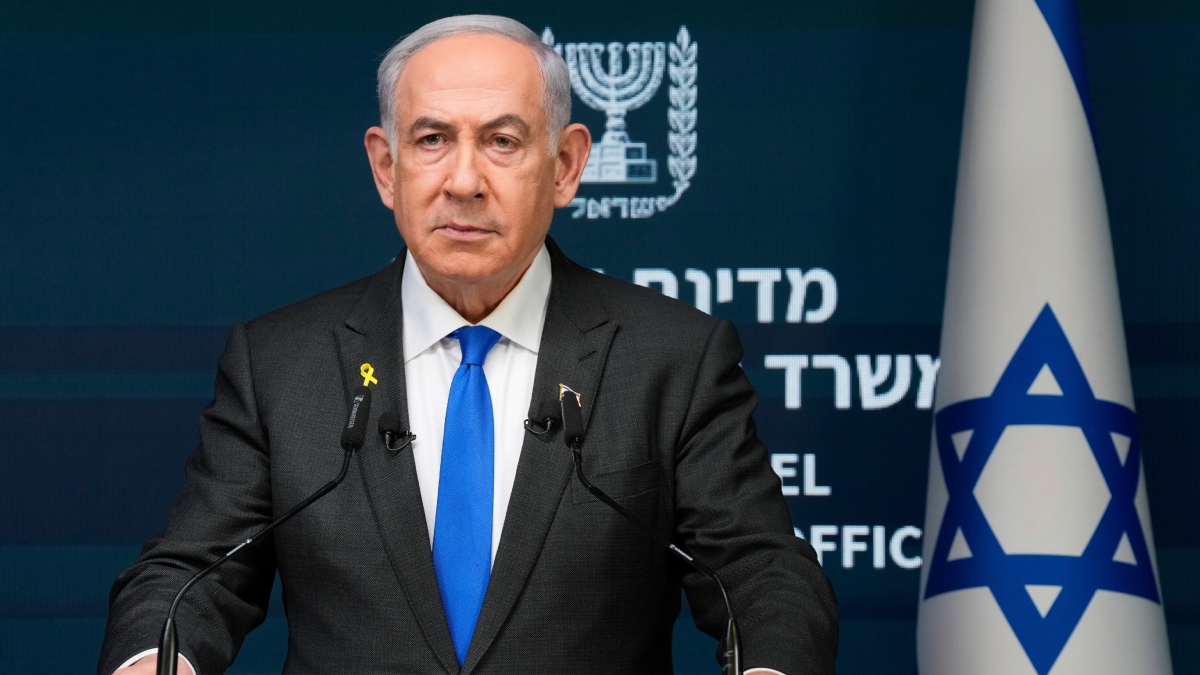Netanyahu’s corruption hearing postponed as Donald Trump urges Israel to cancel case
 Israeli Prime Minister Benjamin Netanyahu speaks during a news conference in Jerusalem | AP
Israeli Prime Minister Benjamin Netanyahu speaks during a news conference in Jerusalem | AP
The Jerusalem District Court agreed on Sunday to postpone Prime Minister Benjamin Netanyahu’s scheduled testimony in his corruption trial for the coming week, following a closed-door session attended by Netanyahu and the heads of Israel’s intelligence services.
The court cancelled the hearings set for Monday and Wednesday, but declined to postpone the entire next week’s proceedings, citing “a lack of certainty” over anticipated developments. Netanyahu’s legal team had earlier requested a two-week delay, citing “diplomatic, national and security issues of the first order” in the aftermath of Israel’s recent conflict with Iran, which ended in a ceasefire last week.
That initial request was rejected by the judges, who said they had not been given sufficient justification. However, the court reversed course after hearing direct testimony from Netanyahu, Mossad chief David Barnea and IDF Military Intelligence head Major General Shlomi Binder, who explained the prime minister’s current obligations. The court acknowledged that “significant additions and changes” had been made to the original rationale.
“The explanations given led us to partially accept the request,” the court said in its ruling, which was published by Netanyahu’s Likud party. “We are cancelling Mr Netanyahu’s hearings scheduled for this week.”
The move came just days after US President Donald Trump intervened publicly, calling for the trial to be halted. In a post on his Truth Social platform, Trump labelled the case a “witch hunt” and warned that it could obstruct Netanyahu’s role in negotiations with Iran and Hamas. “The United States of America spends billions of dollars a year, far more than on any other nation, protecting and supporting Israel,” Trump wrote. “We are not going to stand for this.”
The comment was widely seen as an attempt to use American military aid as leverage to pressure Israel into cancelling the trial. It also marked a dramatic break from longstanding bipartisan US policy that treats aid to Israel as untouchable.
Trump’s remarks drew criticism in Israel. Opposition leader Yair Lapid said that the US president “should not interfere in a judicial trial in an independent country”.
Netanyahu, who was indicted in 2019, faces charges of bribery, fraud and breach of trust in three cases. He and his wife, Sara, are accused of accepting lavish gifts from wealthy businessmen in return for political favours. In two other cases, he allegedly sought favourable coverage from Israeli media outlets. Netanyahu denies all charges and claims the proceedings are a politically motivated campaign to remove him from office.
Since the trial began in May 2020, the prime minister has repeatedly requested delays. His lawyers argued that he should be excused from testifying this fortnight due to pressing national security matters, particularly in the wake of the ceasefire with Iran and ongoing fighting in Gaza, where several Israeli hostages remain captive.
Despite the court’s partial acceptance of the request, it remains unclear whether Netanyahu’s testimony will resume next week. For now, Israel’s political and judicial systems remain entangled in a high-stakes drama.
Middle East